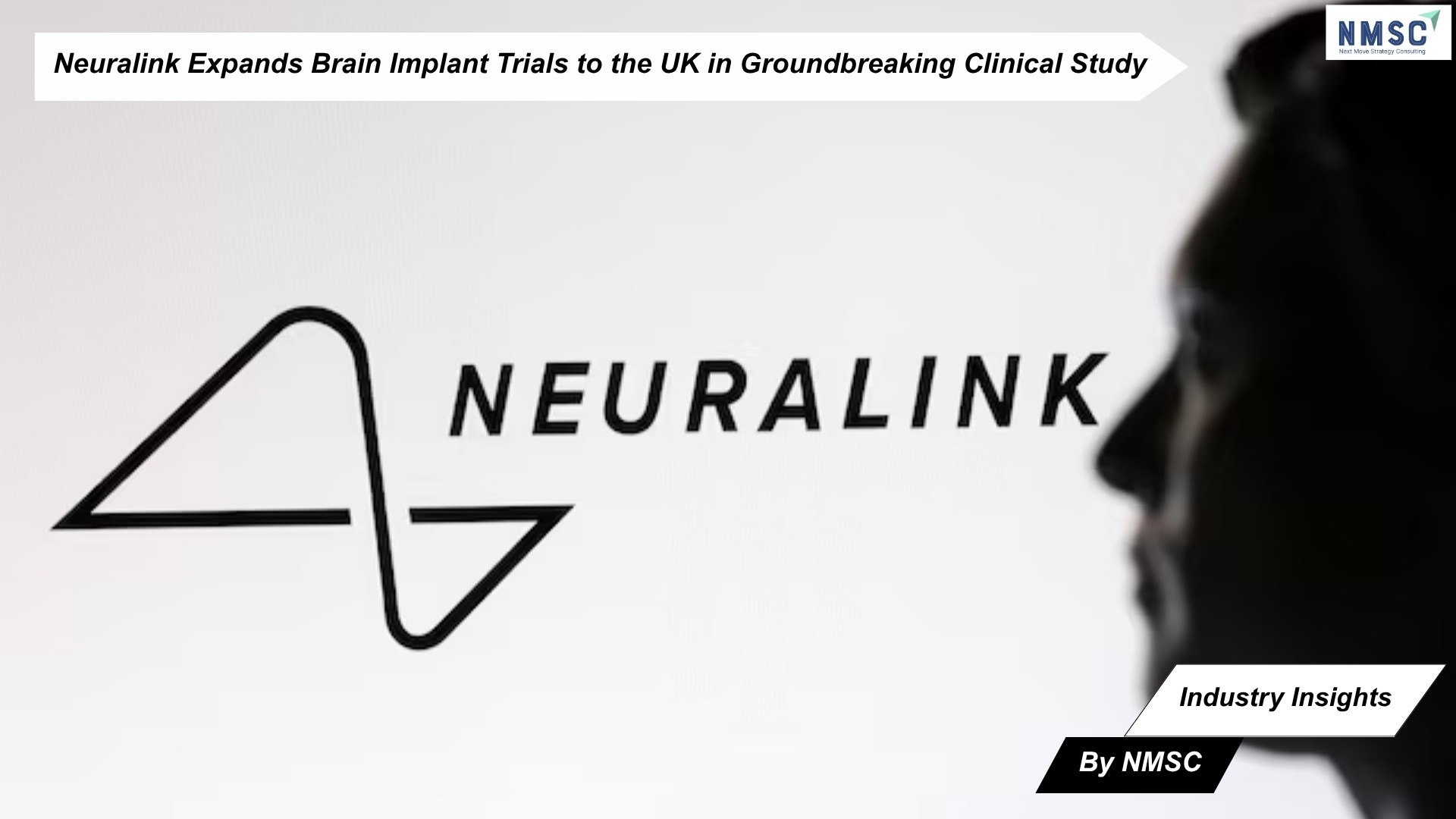Neuralink Begins UK Trials of Brain Implants for Paralysis
Published: 2025-08-01

Industry Insights from Next Move Strategy Consulting
In a pivotal advancement for neurotechnology and patient rehabilitation, Elon Musk's brain implant company Neuralink announced on Thursday that it will initiate a clinical study in Great Britain to evaluate how its brain chip technology allows individuals with severe paralysis to control digital and physical devices using their thoughts.
Neuralink Partners with UK Hospitals for Paralysis Study
The company announced in a post on X that it is collaborating with University College London Hospitals Trust and Newcastle Hospitals to carry out the study.
Neuralink stated that individuals with paralysis resulting from conditions like spinal cord injuries or the neurological disorder Amyotrophic Lateral Sclerosis (ALS) are eligible to take part in the study.
Neuralink Advances Trials After $650M Boost
Last month, Neuralink secured $650 million in its most recent funding round. The company initiated human trials of its brain implant in 2024 after addressing safety concerns previously raised by the U.S. Food and Drug Administration. The FDA had initially rejected Neuralink’s application in 2022, citing potential risks. Following revisions to its protocols, the company gained regulatory clearance and proceeded with clinical testing aimed at helping patients with severe neurological conditions regain control through brain-computer interface technology.
Neuralink Device Empowers Five Paralysis Patients
Neuralink has revealed that five individuals living with severe paralysis are actively using its brain-computer interface to operate both digital and physical devices solely through their thoughts. This development marks a significant milestone in the company's mission to restore independence and communication for people affected by conditions such as spinal cord injuries or ALS. By translating neural signals into real-time commands, the device enables users to interact with technology in ways previously thought impossible. The ongoing use of the implant by these patients highlights both the safety and functional potential of the system as Neuralink advances its clinical research efforts.
Conclusion
As Neuralink continues to expand its clinical footprint with trials now underway in the United Kingdom, the collaboration with leading institutions such as University College London Hospitals Trust and Newcastle hospitals underscores the critical role of advanced medical centers in pioneering next-generation neurotechnology. These hospitals not only serve as vital testing grounds for groundbreaking innovations but also symbolize the convergence of science, medicine, and technology in restoring autonomy to individuals living with severe paralysis.
Source: https://www.reuters.com/
Prepared by: Next Move Strategy Consulting
















Add Comment